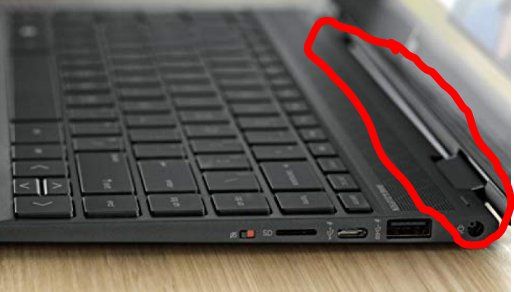Laptops often make noises like whirring or buzzing sounds when powered on. This noise comes from the laptop’s internal components like the CPU fan, hard drive, DVD drive, etc. While some noise is normal, loud or excessive noise can be annoying and indicate potential problems. There are several steps you can take to silence a noisy laptop at startup.
Why Does My Laptop Make Noise When Turned On?
There are a few common culprits for start up noises in laptops:
CPU Fan
The CPU (Central Processing Unit) fan kicks in at startup to keep the CPU cool. Dust buildup, worn out bearings, obstructed fan blades or a failing fan motor can cause noise from the CPU fan.
Hard Drive
Friction between the drive platters and read/write heads of a hard disk drive can cause spinning, whirring or clicking sounds at startup. Noisy hard drives may indicate imminent failure.
Optical Drive
If your laptop has a CD/DVD drive, this can produce grinding or whirring noises when starting up as the drive spins to life. Older optical drives tend to get noisier over time.
Loose Internal Components
Components like cables, connectors or cards that are loose inside the laptop case can vibrate at startup and cause rattling or buzzing noises.
How to Diagnose the Source of the Noise
Pinpointing which component is making the noise helps guide troubleshooting. Here are some tips for diagnosis:
– Listen closely to identify type of noise (whirring, grinding, buzzing etc)
– Use a stethoscope or tube held to your ear and placed against various spots on laptop to isolate noise
– Start laptop with case open to locate noise source
– Remove external devices and peripherals to eliminate those as source
– Visually inspect fans and drives for blockage or damage
– Run diagnostic software like HDD Scan to test hardware health
Simple Fixes and Maintenance to Stop Laptop Noise
Here are some basic things to try first before exploring more involved repairs:
Update or Reinstall Drivers
Outdated, corrupt or missing drivers can cause component conflicts resulting in noise. Update all drivers related to fans, power settings and hardware components.
Clean the CPU Fan
Use compressed air to blow out any dust buildup on the CPU fan blades and heat sink. Slow or blocked fans can get noisy with strain.
Tighten Internal Components
Open up the laptop case and ensure no cables or components are loose. Tighten screws on the hard drive and other hardware. Replace any loose connections.
Allow Proper Ventilation
Make sure vents are not obstructed by dust, nearby objects or use on soft surfaces like beds or sofas. Keep the laptop elevated and on a hard flat surface.
Check for Overheating Issues
Excessive noise can indicate overheating problems. Download monitoring software like SpeedFan or Core Temp to check your laptop’s temperature. Clean out air vents and consider upgrading to a cooling pad.
Disable Startup Programs
Too many programs loading at boot can overload the laptop and cause noise. Disable unnecessary apps in msconfig or the task manager startup tab.
Advanced Troubleshooting for Persistent Laptop Noise
For ongoing laptop noise that basic fixes don’t resolve, more advanced troubleshooting may be needed:
Update BIOS
An outdated system BIOS can cause conflicts with components leading to noise. Check your laptop manufacturer’s website for the latest BIOS version and install any available updates.
Test with Live CD
Boot your laptop from a Linux live CD or external operating system to isolate the issue. If noise persists, it likely stems from a hardware rather than software issue.
Replace Faulty Hardware
Excessively noisy fans, hard drives or optical drives may need replacement by a repair technician. You can also try swapping in new hardware components yourself if you’re comfortable doing so.
Adjust Power Settings
Make sure your power settings are properly configured for optimum noise levels versus performance. Adjusting settings like minimum/maximum processor state can help.
Reapply Thermal Paste
Old, dried up thermal paste between the CPU and heat sink can cause overheating and fan noise. Clean off old paste and reapply fresh high-quality thermal paste.
Use Sound Dampening Materials
Self-adhesive sound dampening sheets placed strategically inside the laptop case can muffle resonant noise and vibrations.
Best Practices to Prevent Excessive Laptop Noise
Employing ongoing laptop maintenance helps avoid excessive noise problems:
– Keep your laptop’s operating system, security software, drivers and BIOS updated
– Periodically clean out vents and fans with compressed air
– Don’t block vents or use on soft surfaces that trap heat
– Replace thermal paste annually or as needed
– Avoid resource-intensive programs and settings that overtax your laptop
– Invest in a laptop cooling pad for additional air circulation
– Maintain proper airflow and don’t cram too many components into the laptop case
– Handle laptop gently to avoid jostling loose internal connections
– Use noise suppression software to dynamically control fan speeds
When to Take Your Laptop to a Repair Shop
If you’ve tried the above troubleshooting without success, it may be time to seek professional repair help. Also visit a repair shop if:
– Noise indicates the laptop is overheating and shutting down
– You notice burning smells or smoke coming from laptop
– You don’t feel comfortable opening up the laptop case to inspect and replace parts
– Laptop is no longer under warranty and cost of repairs outweighs replacement
– Annoying noise stems from component failure (fan, drive, etc) beyond DIY skills
– Noise is accompanied by other serious problems like system crashes
Conclusion
Diagnosing and silencing an annoyingly noisy laptop may require trial and error. Start with easier DIY fixes like cleaning intake vents, updating software and drivers, and adjusting power settings. For hardware-related noise issues consider professional repair. With some targeted troubleshooting, you can get your laptop running quietly again. Implementing ongoing maintenance best practices will help prevent excessive laptop noise in the future.
